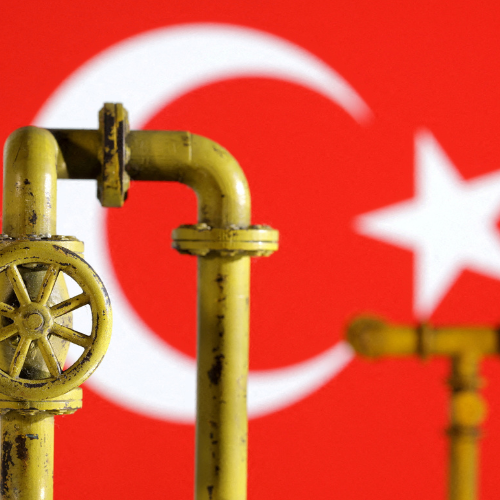Turkey is caught in a tough spot as it tries to secure a waiver from the United States that would allow it to continue paying Russia for natural gas. The issue revolves around sanctions imposed on Gazprombank, a key Russian financial institution that handles energy payments. Turkey’s Energy Minister explained that without this waiver, the country might face severe challenges in paying for the gas it needs to keep homes warm and businesses running.
Turkey’s Dependence on Russian Gas
Turkey relies heavily on natural gas from Russia to meet its energy needs. In 2022, Russia provided nearly 42% of Turkey’s total natural gas imports, making it the largest supplier to the country. This gas is used for electricity, heating, and many industrial purposes. If Turkey cannot pay Russia for these supplies, the minister explained, they won’t be able to continue importing gas.
To facilitate these payments, Turkey uses Gazprombank, one of Russia’s main banks dealing with energy-related transactions. This arrangement worked well until recently when the U.S. imposed sanctions on Gazprombank as part of its efforts to punish Russia for the ongoing conflict in Ukraine.
Without a waiver or special permission from the U.S., Turkey’s energy payments to Russia could become impossible. This could lead to disruptions in gas supply, potentially causing major problems for Turkey’s energy security.
Tensions Between Allies: The Need for a Waiver
This situation is creating tension between Turkey and its NATO ally, the United States. On one hand, Turkey has provided support to Ukraine in the form of drones and artillery supplies. On the other hand, Turkey has not joined Western nations in imposing sanctions on Russia. Instead, it has chosen a different path, trying to act as a mediator between Russia and Ukraine.
In the past, the U.S. has granted sanctions waivers to countries like Turkey for dealing with Iran. The Turkish government hopes a similar exception will be made in this case. According to the Turkish energy minister, without such a waiver, the consequences could be “very big” for the country.
US Sanctions Gazprombank to Limit Russia’s War Funding
Other countries in the region are also feeling the effects of the new sanctions. Hungary, which depends on Russian gas like Turkey, has also criticized the U.S. move. Hungarian officials believe energy security should not be jeopardized by sanctions, highlighting the challenges many European countries are facing due to their reliance on Russian gas.
Russia and Turkey’s Complex Relationship
Turkey’s energy ties with Russia go beyond just natural gas. Russia also supplies nearly half of Turkey’s crude oil and is involved in building Turkey’s first nuclear power plant. This power plant, being constructed by the Russian state-owned company Rosatom, is expected to play a major role in Turkey’s energy future. Discussions for a second nuclear power plant are also underway.
In addition, Turkey and Russia are working on a plan to make Turkey a natural gas hub for the region. This project involves potentially laying more pipelines under the Black Sea. If completed, it would strengthen their energy relationship even further.
Despite these close energy ties, Turkey has not let this stop it from supporting Ukraine in some ways. The Turkish government has sent military drones and critical equipment to Ukraine, which has helped the Ukrainian army in its fight. At the same time, Turkey has avoided taking sides fully and has pushed for peace talks between the two countries.
Turkey also played a key role in brokering a deal last year that allowed Ukrainian grain to be exported through the Black Sea, helping avoid a global food crisis. This balancing act has been a cornerstone of Turkey’s strategy, but the current sanctions on Gazprombank have added a new layer of difficulty.
The U.S. sanctions on Gazprombank, which previously avoided penalties, are now putting Turkey in a difficult position. Without a waiver, Turkey’s energy supply and its ability to continue importing vital resources from Russia could face major challenges. For now, Turkey is working hard to get the waiver it needs, but the stakes are high as winter approaches and energy needs peak.


